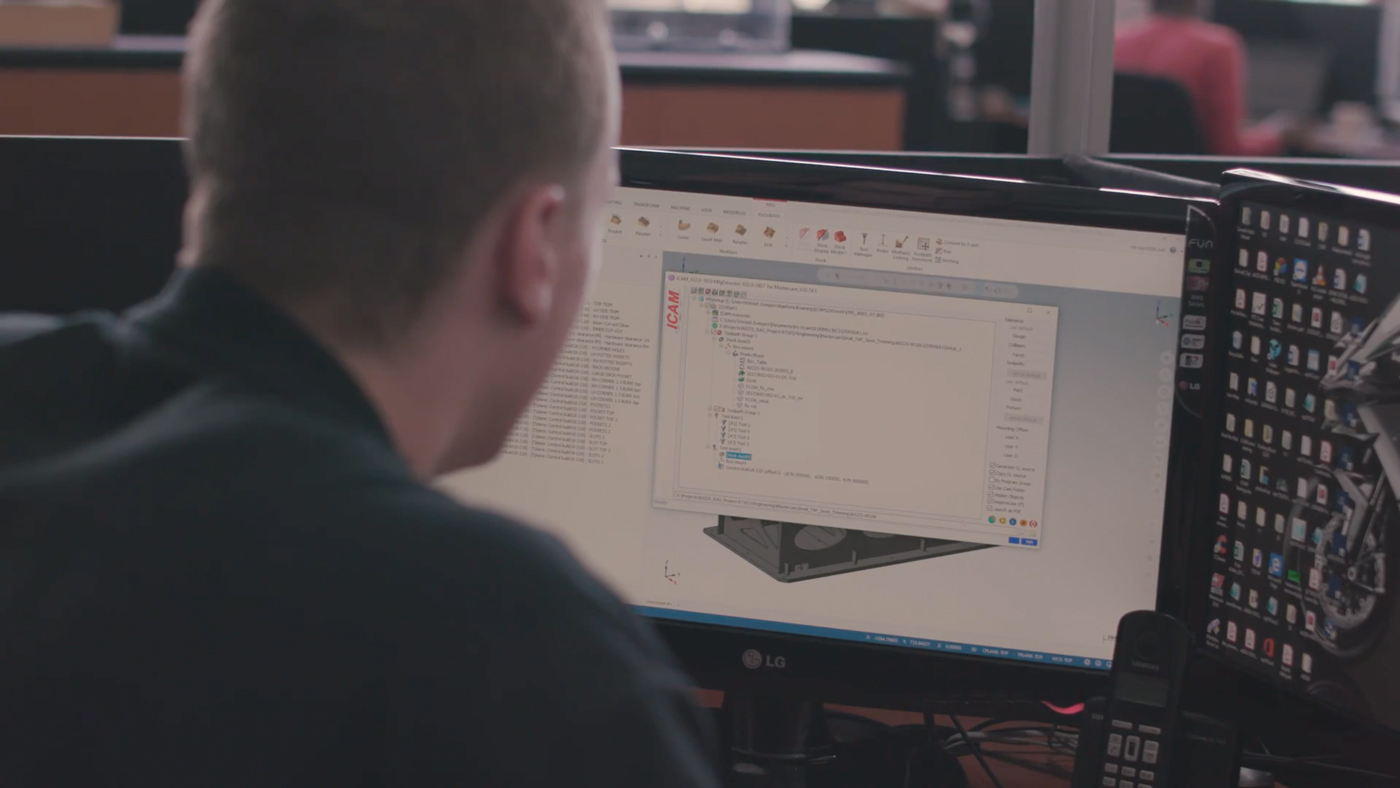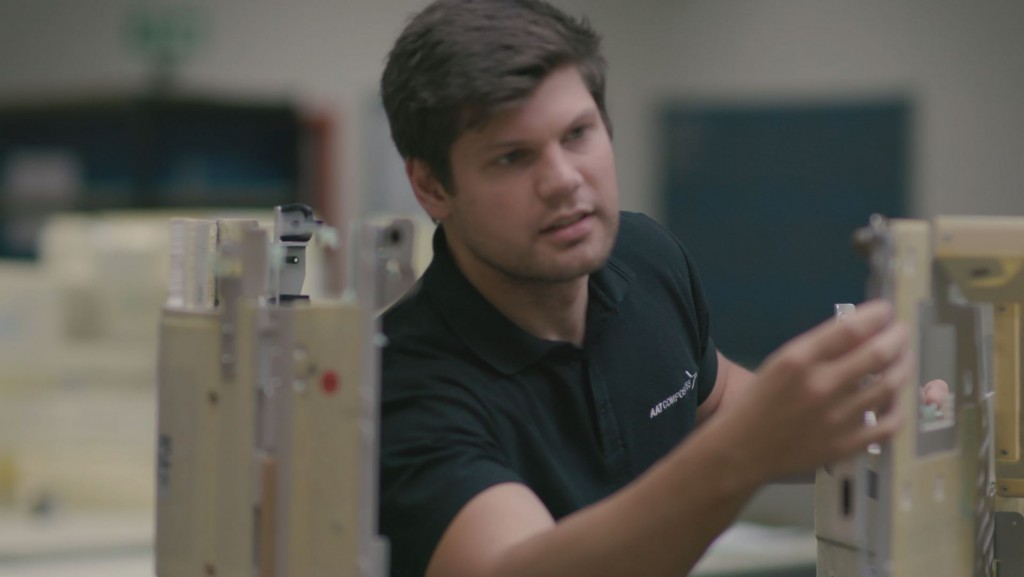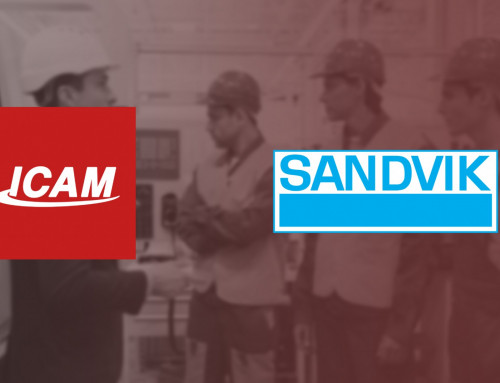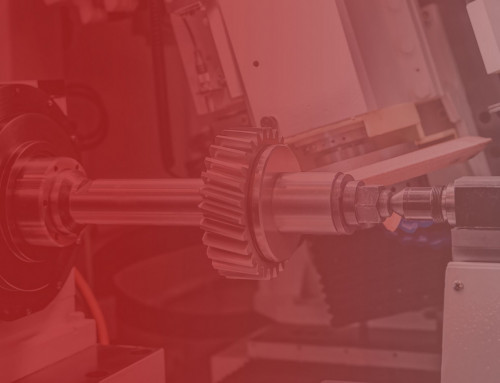Categories
Based in Western Cape, South Africa, AAT Composites began producing composite parts for local aerospace and defense industries in 1983, before expanding its offerings into international markets like aviation, marine, automotive, and signage. Now owned by RECARO Aviation Seating, they’ve established themselves as a market leader in the manufacture and design of innovative composite parts for the high-end automotive and aviation industries. We sat down with a few key players at AAT to understand the unique challenges composite machining creates and how ICAM helped them overcome them.

Reducing CATIA & Mastercam programming time in composites trimming
“We manufacture composite parts. When we machine them it’s a combination of materials, so it’s different speeds and feeds which the machine needs to accomplish in order to cut those parts properly.” describes Malte Schwerner, Executive Manager of Engineering. To get those speeds and feeds just right, they were putting in hours of work in CATIA and Mastercam, finely-tuning their NC programs with special consideration for hard-points and other composite pitfalls. What’s worse, all that work couldn’t guarantee the NC program wouldn’t cause a crash or collision.
They quickly realized they needed to improve their CNC manufacturing process to keep up with the high demands of the industry. Jan Du Toit, Project Engineer, lays out the problem plainly: “We didn’t have proper simulation of the machining process. If there were problems, we went back upstairs and the CAD/CAM guys had to adapt the program and we start the whole process from the beginning.” He recognized this tedium was weighing the process down and wasn’t allowing them to perform at peak output.
Beyond that, Jan brings up another issue in composite trimming that sets it apart from metal machining. “For composite trimming, you have light-weight, fast-moving machines. Because the machines are fast-moving, crashes can happen very quickly.” Yet another point where manufacturing problems were cutting into their bottom line. This is where ICAM and our exclusive Adaptive Post-Processing technology came into play.

Reliable CNC machine simulation and so much more
All of our Adaptive Post-Processing solutions begin with a custom-developed post-processor that puts you in control of your machine’s most advanced functionality. From there, we add our Virtual Machine simulation, which, thanks to a high-precision machine model, reliably identifies crashes before the code ever even hits the machine. But it doesn’t end there; the addition of our SmartPACK module suite takes CNC optimization to a whole new level by automatically correcting those crashes before they occur. “Since we have the Adaptive Post-Processing module we don’t only pick up the crashes during the simulation, but the Adaptive Post-Processor will actually avoid the crashes without much intervention of the CAD/CAM programmer” said Du Toit.
“…the Adaptive Post-Processor will actually avoid the crashes without much intervention of the CAD/CAM programmer”
Jan Du Toit – Project Engineer at AAT Composite
That means Adaptive Post-Processing doesn’t only show you what tool-path the machine is following, but uses real-world machine travel limits, tool and fixture models and in-process stock analysis to provide you with the fastest possible positioning motions, dramatically reducing your CAM programming time. All this thanks to our unique approach that combines post-processing, machine simulation, and tool-path optimization. Now, the team at AAT can not only be sure their machines won’t crash, but also be satisfied knowing they’re cutting as quickly and efficiently as possible. “People are starting to trust the ICAM solution and they trust that the files that go down to the plant will actually work. So they are not afraid to run the programs at full speed anymore, which also saves us time.” Jan concludes.

The effect on the bottom-line
Since implementing ICAM into their day-to-day CNC manufacturing process, AAT has been able to not only meet but surpass their production goals, all while providing a safe work environment for its 500 employees. Uwe Kliche, General Manager, sums it up best, “With introducing the ICAM software we have seen significant improvements in cutting times. That means we can cut more parts in the same time, which allows us to balance peak times and also to get more business on the same machine… So that all then concludes in a positive impact on our commercial bottom-line.”



